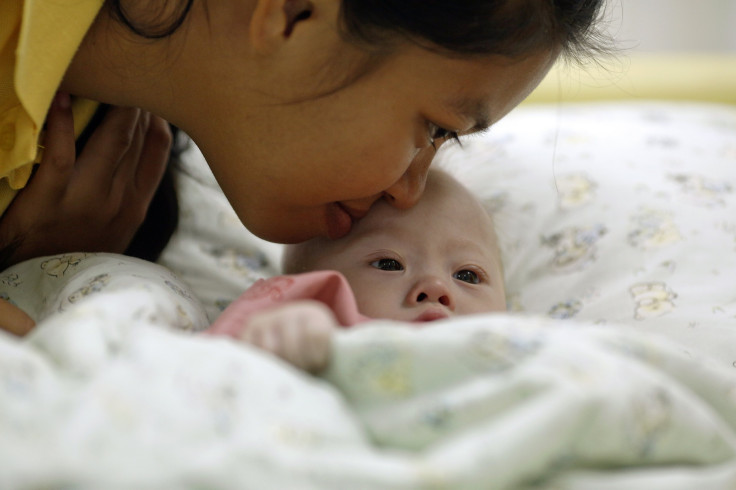Moms More Likely Than Dads To Use 'Baby Talk' With Children: Study

A recent study has revealed that fathers of young children are more likely to treat their offspring like grownups, while mothers stick to “baby talk” and are more likely to coo at their young. However, the study also claimed that both approaches help babies learn to talk.
Scientists at Washington State University said the soft baby talk, or “motherese,” helps promote bonding between mother and child, while the grownup tone used by fathers helps create a bridge between the child and the outside world.
The scientists came up with the theory after analyzing speech patterns of different parents using speech recognition software. The intention was to see whether fathers modify their speech the same way mothers do while talking to their children. The results showed that fathers indulge less in tones that represent motherese.
“This isn’t a bad thing at all, it’s not a failing of the fathers,” lead researcher Mark VanDam said. “We think that maybe fathers are doing things that are conducive to their children’s learning but in a different way. The parents are complementary to their children’s language learning.” The study included only those families where both parents lived full-time with their child.
VanDam further clarified that although fathers do not indulge in baby talk, that does not mean they don't modify their speech. Fathers often use simplified language and modify the volume or duration of the speech to communicate in their own way.
The findings are scheduled to be presented at the annual meeting of the Acoustical Society of America.
© Copyright IBTimes 2024. All rights reserved.











